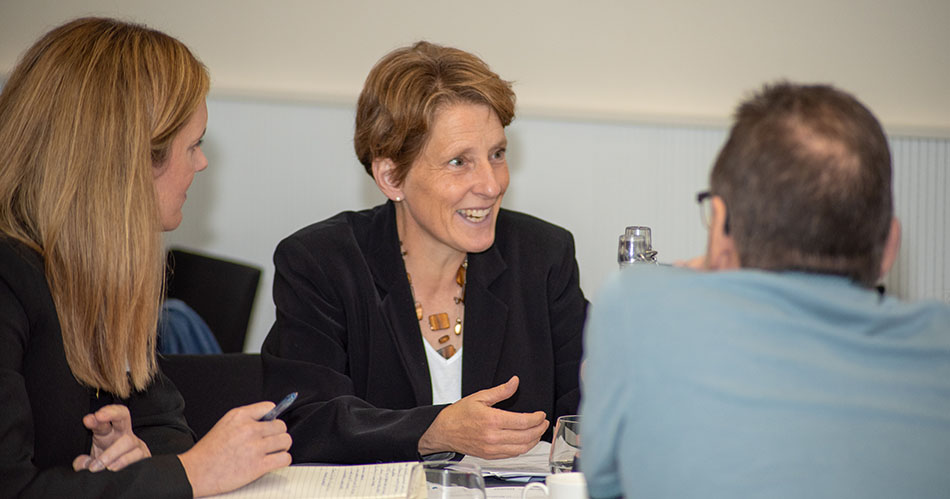
Education & Training, Course Accreditation and Examinations Workshop
An Education & Training, Course Accreditation and Examinations workshop organised by the Science Council and the Royal Academy of Engineering took place on 16th September to support diversity and inclusion progress across science and engineering professional bodies.
35 delegates from a wide range of science and engineering professional bodies took part in the workshop to learn more about the challenges, good practices and opportunities to plan for change in their organisations.
Sarah Sharples, the Pro-Vice-Chancellor for Equality, Diversity and Inclusion at the University of Nottingham talked about the importance of taking a holistic approach to issues raised by students, which included:
- Being aware of the value of a systems perspective to the education and learning experience
- Understanding the impact of holding protected characteristics on different types of modules and assessment
- Appreciating the importance of inclusion for an effective learning experience
- Increasing awareness of adjustments that can be made to learning and assessment
Sarah also shared good practice tips:
- Conduct data analysis in detailed manner – don’t just look at overall means.
- Work in partnership with different parts of the organisation to share best practice
- Unconscious bias training can be valuable, but EDI is much, much more than this
- Don’t assume that just because a person holds a protected characteristic they will be ‘typical’ – and where possible, make adjustments for all, rather than for individual groups or students
Tom Welton, Dean of the Faculty of Natural Sciences at Imperial College London and incoming President at the Royal Society of Chemistry (RSC) highlighted recent reports and conferences on:
- Women’s retention and progression in the chemical sciences
- Exploring the workplace climate for LGBT+ scientists
- Addressing barriers to career progression for women and minority groups
Tom also spoke about course accreditation at the RSC, which asks direct questions about inclusion and diversity and ask higher education institution to highlight areas of good practice. This approach develops into broader conversations about inclusion matters that can, for example, cover reasonable adjustments and moving from examination to blended assessments
Tom also noted the importance of looking at current situation within the context of bigger picture, as most professional body statistics are skewed by historical data.
You can find the slides from the workshop on the D&I Progression Framework Steering Group page on our website.
